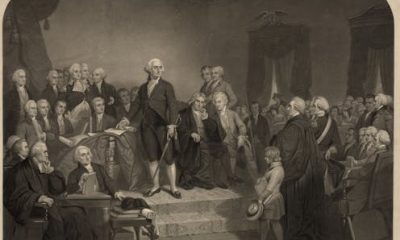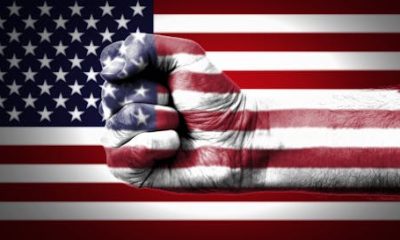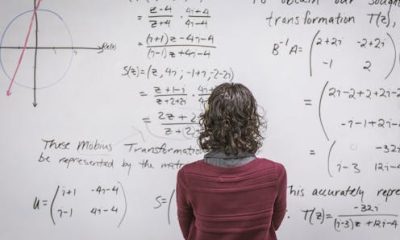Former NRA leader Wayne LaPierre addresses the group’s members in 2022. AP Photo/Michael Wyke
A New York jury found on Feb. 23, 2024, that the National Rifle Association and three of its current and former officials had broken the state’s laws by misusing charitable assets. It also determined that two of the officials should repay the gun group millions of dollars.
The verdict followed a six-week corruption trial that came nearly four years after New York Attorney General Letitia James sued the NRA and almost five years after investigative journalists reported that the group’s leaders, vendors and contractors had improperly spent the nonprofit’s funds on lavish travel and other personal expenses. The NRA responded to the verdict by saying it had been “victimized by certain former vendors and ‘insiders’ who abused the trust placed in them by the Association” and listing steps it had already taken to get its house in order.
The Conversation asked Sarah Webber and Elizabeth Schmidt, experts on nonprofit accountability at the University of Dayton and UMass Amherst, to answer questions about the complicated case.
What does this verdict mean for the defendants?
The jury evaluated evidence regarding the NRA and three individual defendants in the case: Wayne LaPierre, the longtime head of the NRA; its former treasurer and chief financial officer Wilson Phillips; and John Frazer, who is still serving as the group’s corporate secretary and general counsel.
The jury found that all three defendants had violated state nonprofit statutes and breached their fiduciary duties.
It also found that the NRA had ignored whistleblower complaints and retaliated against the whistleblowers, submitted false filings and failed to properly oversee its charitable funds. The NRA was found liable for making false statements in mandatory regulatory filings, as was Frazer.
The jury determined that LaPierre, who announced his retirement days before the trial began and officially stepped down while it was underway, had “violated his statutory obligation to discharge the duties of his position in good faith.”
LaPierre was ordered to repay the NRA US$5.4 million. Because he has already repaid over $1 million following an internal NRA investigation, he will only have to pay back $4.35 million, James announced.
Since the jury said that LaPierre should be removed from his job, from which he had already resigned, it’s possible that he will be barred from ever returning.
Phillips was ordered to pay $2 million back to the NRA. Although the jury did not find that there was enough evidence against Frazer to remove him from his current position as corporate secretary, it did find both Frazer and Phillips had violated their duties as corporate officers of the NRA.
Another defendant, LaPierre’s former chief of staff Joshua Powell, settled the case against him on the eve of the trial and agreed to testify against his former employer, the NRA. Powell must repay the NRA $100,000 and is permanently barred from serving in any fiduciary capacity at charitable organizations in New York state.
What’s wrong with what these NRA leaders did?
The NRA was chartered in 1871 as a nonprofit in New York. It’s therefore subject to that state’s laws.
New York requires three duties of top nonprofit executives, such as the defendants in this case: the duty of care, the duty of loyalty and the duty of obedience. That means they must care for the NRA and its mission, keep the NRA’s interests ahead of their own and obey, or further, the NRA’s mission while obeying the law.
According to the jury, the defendants breached all three duties.
Asking the NRA to pay for lavish personal trips, flights aboard private jets and helicopters, expensive clothes and hair (sm: hair styling?) and makeup for LaPierre’s wife – all of which came up during the trial – could not be considered fair to the organization.
“In New York, you cannot get away with corruption and greed, no matter how powerful or influential you think you may be,” James posted on X, formerly Twitter. “Everyone, even the NRA and Wayne LaPierre, must play by the same rules.”
New York Attorney General Letitia James declared the verdict ‘a major victory for the people of New York and our efforts to stop the corruption and greed at the NRA.’
AP Photo/Brittainy Newman
What will this mean for the NRA?
Charitable downgrades are now likely by rating organizations. For example, Charity Watch has issued a “?” rating for the NRA due to “concerns about this organization” and its “nondisclosure of financial information.”
Repayment by LaPierre and his former colleague will depend on whether or not they file an appeal, and it is unclear whether they can afford to pay the millions of dollars they owe the NRA. LaPierre’s attorneys have indicated that they plan to appeal.
Further, in defending the case, the NRA is likely incurring significant legal fees.
And the NRA relies on dues payments for much of its budget. It has reportedly lost 1 million members out of the estimated 5 million that belonged to it before reports of improper spending patterns arose.
What’s next?
There will be another trial to determine whether any “non-monetary” punishment is appropriate for the NRA or the individual defendants, James said.
One key issue the judge will decide is whether independent monitors and experts should review and assess whether the NRA is now spending its money appropriately. The monitor would report to the court on its observations.
The judge could also find that an independent governance expert, which would also report directly to the court, should be appointed. But that person would focus on whether the NRA should reform its procedures and policies related to how the organization spends its money and how the board approves management decisions.
The judge will also rule on whether LaPierre and Phillips should be barred from any future appointments as officers at the NRA or other charitable organizations in New York, and if Frazer will be barred from collecting or requesting donations for any charity operating in New York.
The authors do not work for, consult, own shares in or receive funding from any company or organization that would benefit from this article, and have disclosed no relevant affiliations beyond their academic appointment.
Advertisement

Advertisement
Contact Us
If you would like to place dofollow backlinks in our website or paid content reach out to info@qhubonews.com











